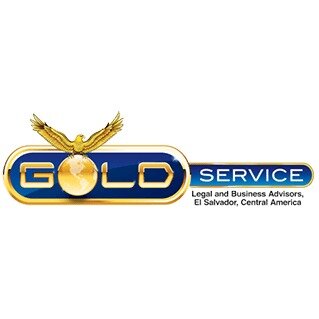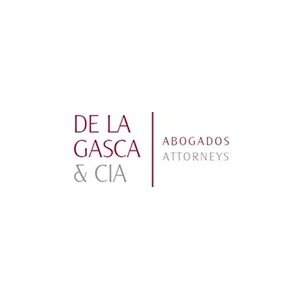Best Mining Law Lawyers in San Salvador
Share your needs with us, get contacted by law firms.
Free. Takes 2 min.
List of the best lawyers in San Salvador, El Salvador
About Mining Law in San Salvador, El Salvador
Mining law in San Salvador, El Salvador, is a specialized legal area that governs the exploration, extraction, processing, and exportation of minerals within the region. This branch of law establishes the framework for how mining activities are conducted, who can participate in the sector, the rights and obligations of companies and landowners, and the environmental and social standards that must be observed. El Salvador has a particular context, given that in 2017 it became the first country in the world to ban metals mining on its territory. This ban, reflected in the "Ley de Prohibición de la Minería Metálica," significantly impacts all mining operations and related activities throughout San Salvador and the rest of the country.
Why You May Need a Lawyer
Navigating mining law in San Salvador, El Salvador, can be challenging due to the complexity of local and national regulations, as well as the total prohibition on metals mining. You may need a lawyer if you find yourself in any of the following situations:
- You are a landowner and have questions regarding mineral rights or land use.
- Your business previously operated in the mining sector and is dealing with ongoing legal or contractual obligations.
- You are interested in non-metallic mining (such as construction materials) and need to ensure compliance with current legislation.
- There are disputes about boundaries, land access, or environmental damage involving former or current mining sites.
- You face administrative proceedings regarding permits, environmental compliance, or remediation requirements related to mining activities.
- You are part of a community affected by past or present mining operations and wish to seek compensation or protection.
In all these situations, an experienced lawyer can help you understand your rights, advise on legal options, and represent your interests before administrative authorities or courts.
Local Laws Overview
San Salvador, as the capital of El Salvador, adheres to national mining laws. The key aspects include:
- Prohibition of Metals Mining: Since 2017, the extraction, exploration, and exploitation of metallic minerals is strictly banned by law throughout the entire country.
- Non-Metallic Mining: Some forms of mining, such as the extraction of construction materials (like gravel, sand, and clay), are still permitted, but require compliance with strict regulations regarding environmental permits and site management.
- Environmental Regulations: All mining activities, including quarries and material extraction, must comply with national environmental legislation. This includes obtaining necessary permits, conducting environmental impact assessments, and remediating affected land.
- Landowner Rights: Landowners may have specific rights and obligations if their property contains mineral resources, but the extraction of such materials is heavily regulated and, in many cases, restricted.
- Community Involvement: Local communities have a role in consultation and oversight for any permitted mining and are protected under environmental defense laws.
- International Treaties: El Salvador is a signatory to international agreements relevant to environmental protection and sustainable development, which may influence mining activities.
Due to the outright ban on metals mining, any activity falling outside the allowed exceptions is subject to criminal penalties and administrative sanctions.
Frequently Asked Questions
Is mining currently allowed in San Salvador, El Salvador?
Metals mining is entirely banned across El Salvador, including San Salvador, by a national law enacted in 2017. Only certain non-metallic mining activities, such as quarrying for construction materials, are currently permitted and highly regulated.
What types of mining are permitted under current law?
Only non-metallic mining, such as the extraction of sand, gravel, and stones for construction, is permitted. These activities require proper licensing and strict compliance with environmental regulations.
Do I need permits to extract sand or rocks from my property?
Yes, extracting any mineral, even for personal or construction use, generally requires obtaining permits from relevant governmental authorities and compliance with environmental standards.
What are the consequences of violating mining laws in San Salvador?
Operating illegal mining activities can result in administrative sanctions, substantial fines, closure of operations, and potential criminal prosecution.
Can foreign companies invest in the mining sector in San Salvador?
Foreign investment in metals mining is prohibited. Non-metallic mining activities may be open to foreign investment, but strict regulations and permit requirements apply.
How are communities protected from mining activities?
Communities have a right to participate in environmental consultations and are protected under laws designed to prevent environmental harm and ensure remediation of any damages.
What should I do if a mining activity is affecting my community or property?
You should consult with a lawyer to assess the legal options available, which may include filing complaints with environmental agencies, seeking injunctions, or pursuing damages.
Who enforces mining regulations locally?
The Ministry of Environment and Natural Resources (MARN) is the primary agency responsible for enforcing mining and environmental regulations in El Salvador.
Are there any ongoing legal disputes related to mining in El Salvador?
While metals mining is banned, there are ongoing disputes related to the application of the law, legacy environmental damage, and conflicts over land use in areas previously subject to mining concessions.
Can I obtain information about past mining concessions in San Salvador?
Yes, information about current and historical mining concessions can be requested from government agencies such as MARN and the Ministry of Economy.
Additional Resources
If you need more information or assistance regarding mining law in San Salvador, the following resources can be helpful:
- Ministry of Environment and Natural Resources (MARN): The primary government body overseeing environmental permits and mining activity.
- Ministry of Economy (MINEC): Handles economic aspects and historical records of mining concessions.
- Attorney General's Office: Provides guidance and accepts complaints for legal violations related to mining.
- Local Bar Associations: Can refer you to lawyers specializing in environmental and mining law.
- Civil Society Organizations: Groups such as environmental NGOs may offer support and advocacy for affected communities.
Next Steps
If you believe you need legal advice in mining law, consider the following steps:
- Gather all relevant documents, permits, and correspondence related to your legal situation.
- Consult a lawyer with experience in mining and environmental law in San Salvador.
- Contact the Ministry of Environment and Natural Resources for guidance on the applicability of current laws to your situation.
- Stay informed about national and local developments in mining legislation and enforcement practices.
- If you are a member of a community affected by mining activity, collaborate with local organizations or advocacy groups to ensure your rights are represented.
Legal matters involving mining law can be complex and have long-term consequences. Seeking professional legal assistance as early as possible will help you understand your rights, avoid penalties, and achieve the best possible outcome for your specific case.
Lawzana helps you find the best lawyers and law firms in San Salvador through a curated and pre-screened list of qualified legal professionals. Our platform offers rankings and detailed profiles of attorneys and law firms, allowing you to compare based on practice areas, including Mining Law, experience, and client feedback.
Each profile includes a description of the firm's areas of practice, client reviews, team members and partners, year of establishment, spoken languages, office locations, contact information, social media presence, and any published articles or resources. Most firms on our platform speak English and are experienced in both local and international legal matters.
Get a quote from top-rated law firms in San Salvador, El Salvador — quickly, securely, and without unnecessary hassle.
Disclaimer:
The information provided on this page is for general informational purposes only and does not constitute legal advice. While we strive to ensure the accuracy and relevance of the content, legal information may change over time, and interpretations of the law can vary. You should always consult with a qualified legal professional for advice specific to your situation.
We disclaim all liability for actions taken or not taken based on the content of this page. If you believe any information is incorrect or outdated, please contact us, and we will review and update it where appropriate.











